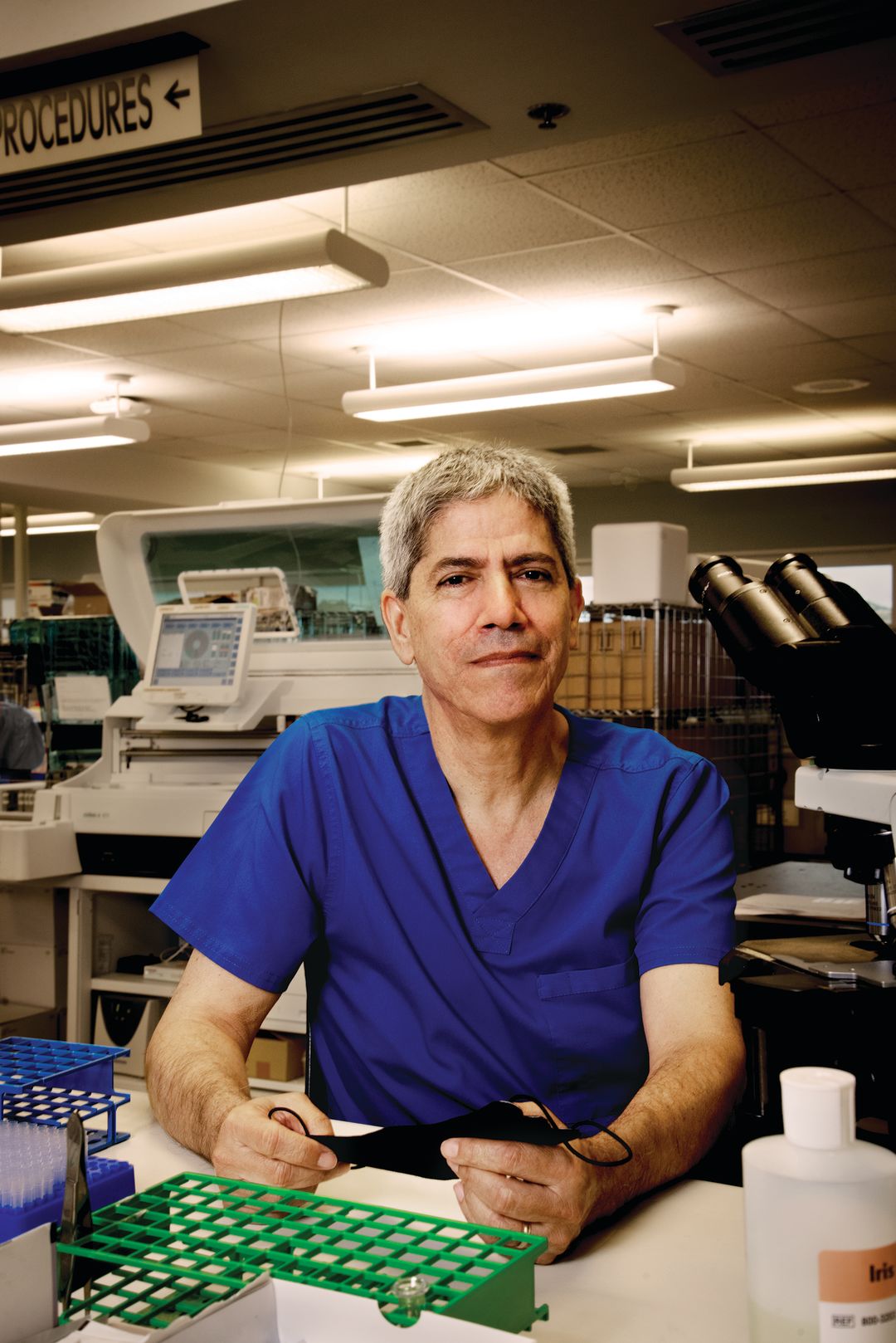Dr. Manuel Gordillo Steers a Community Through a Deadly Pandemic

Dr. Manuel Gordillo
Image: Alan Cresto
If you were awake in the middle of the night at some point in the last few years, worrying about the Covid-19 pandemic, you weren’t alone. Dr. Manuel Gordillo, Sarasota Memorial Hospital’s epidemiologist and infectious disease specialist, was probably awake, too. We know this because you could see him sharing updates on Facebook and responding directly to people’s questions about how to stay safe, the efficacy of masks and vaccines and more—at all hours.
Becoming a public figure was new to Gordillo, who had lived through a number of epidemics (HIV/AIDS, SARS, H1N1, Zika, MERS, Ebola), but had never been thrust into the spotlight like he was with Covid. “Most of us in infectious diseases do not like that role,” Gordillo says, “because we are not trained to be spokespeople and go out in the community or on social media, but in many countries, including ours, the people who were supposed to be doing that were not doing that. The message was controlled and, a lot of times, politicized.” So, Gordillo says, “We learned on the fly.”
Gordillo was born in the U.S., but grew up in Peru with his mother after his parents divorced. In addition to calming sleepless people doomscrolling on Facebook at 2 a.m., he used his fluency in Spanish to reach Hispanic communities hit hard by Covid and struggling to get basic information about the disease. “We had the advantage of seeing who was getting very sick, and often they were multigenerational families from Hispanic communities where they live in a small house that is poorly ventilated and the younger ones were giving it to the older ones,” Gordillo says. “We saw the need to communicate to those folks, and how do you reach them? Through radio and Spanish stations.” Eastern Europeans living in south Sarasota County and French- and Creole-speaking Haitians were two other groups who needed additional outreach from Gordillo and others in the health care system.
As of press time, Covid-19 has killed nearly 2,000 people in Sarasota County and more than 1,600 in Manatee County. The country’s death toll topped 1 million last May and hundreds of Americans were dying from the virus every day as recently as November. Black, Latino and Asian Americans were all about twice as likely to be hospitalized or die from Covid when compared to white Americans. “Even the president says the pandemic is over,” Gordillo says. “It is not over.”
While the world seems ready to move on, Gordillo says now is the time to prepare for the next pandemic. He is calling for a “public health renaissance,” a renewed commitment to build better systems to provide real-time data about emerging health threats across the globe. American health institutions are currently forced to rely on data that is often out of date.
“Imagine you were working at a big bank and you were making economic decisions based on data from two months ago,” Gordillo says. “The bank has data in real time that it can act on. Everything is connected.”
One model for dealing with future pandemics that Gordillo touts is the “7-1-7” concept. Outbreaks must be detected within seven days, public health authorities are notified within one day and response measures are put in place over the following seven days. If the world had had such a system in place before Covid, Gordillo says, “We would have had a lot less deaths than we had.”
Like many other health care workers, Gordillo has been personally attacked by angry people who doubt the science behind Covid treatments and vaccines, but Gordillo takes it in stride. “It is something that you expect,” he says. “It’s disappointing and demoralizing. It can be depressing at times. But I’m a professional. There’s been so much misinformation and disinformation in the system and things break down. You see the fractures in society. We wish it would be different, but it’s not.”
Burnout and staff shortages are real, and Gordillo says the pandemic has taken a personal toll on nearly everyone in the health care field, but, overall, Gordillo says, “Sarasota Memorial has coped better than most other places, because there’s been a lot of support from the administration and the staff has been wonderful. I’m so proud of the health care system. These are humbling experiences.”



